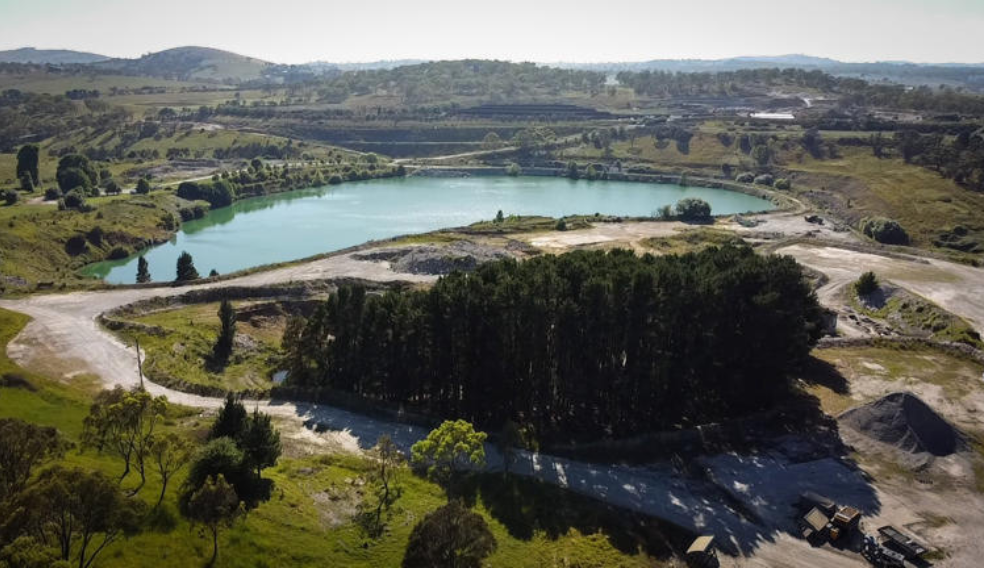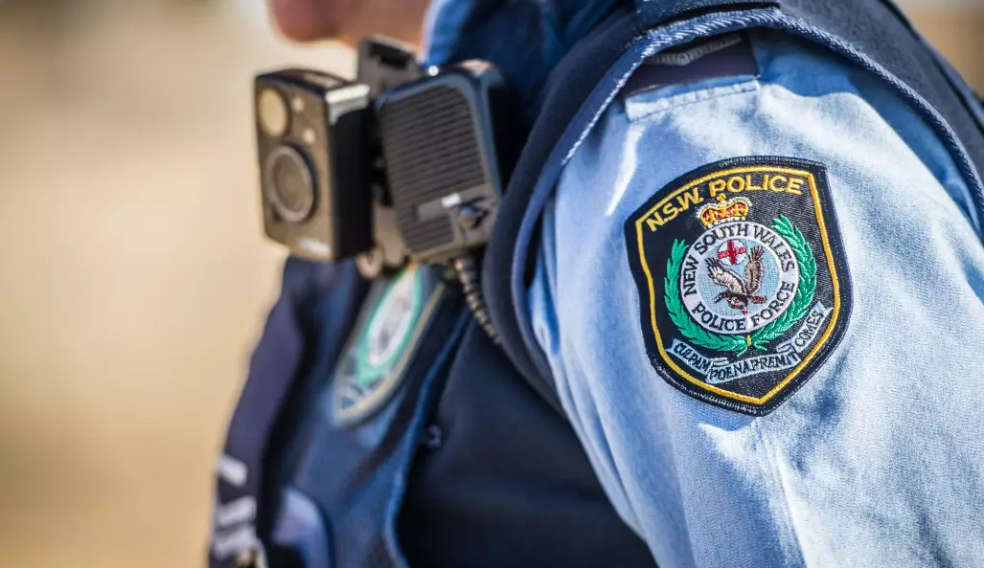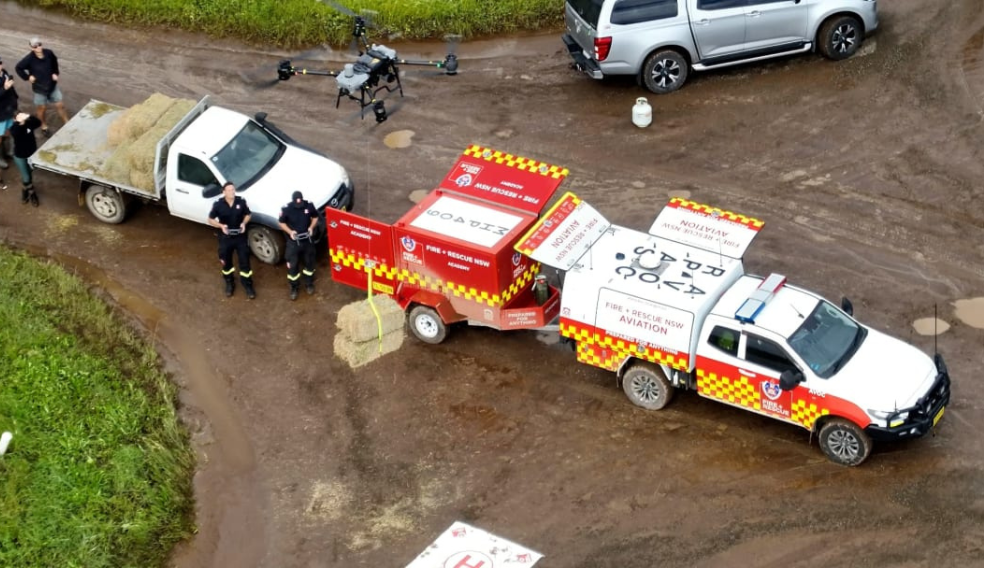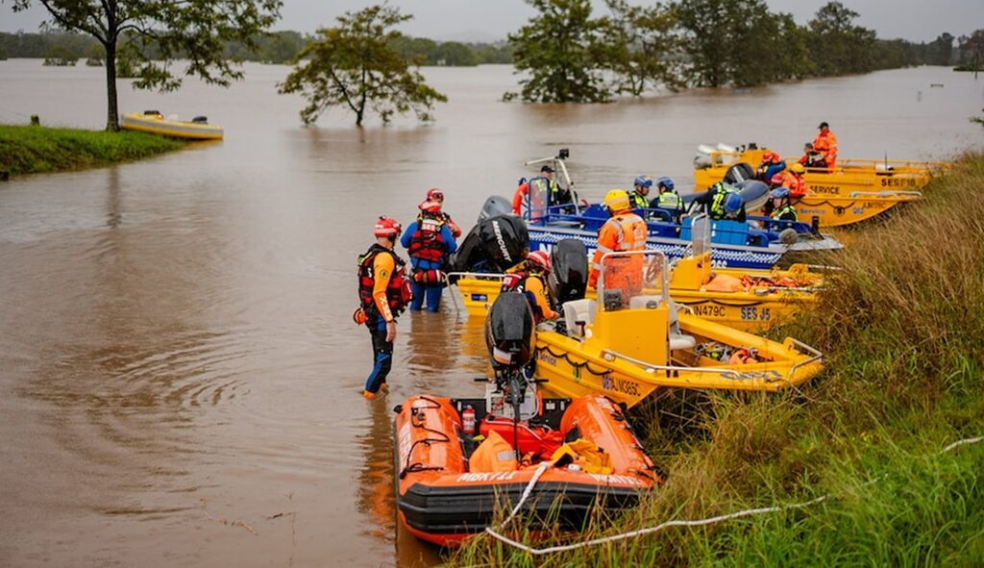May 26, 2025
NSW Public Sector ITAB May 2025 Newsletter
GTAN Forum Resources now available
The ITAB would like to thank all those who participated in the May online GTAN forum and trust that the topics and insights shared in the session were interesting and relevant.
The Network would like to thank James Stroud from Public Skills Australia for providing an update on national Training Package development priorities related to the government and public safety sectors and to Stacy Duggan and Darryl Bailey from NSW SES, who presented on their coordination of multi-agency training exercises in preparation for the far too frequent natural disasters. These training exercises are critical in developing the skills of our NSW public safety workforce (both career and volunteers) to respond to emergencies such as the recent flooding event on the Mid North Coast.
Register now for the June WTAN Forum
Convened by the NSW Public Sector ITAB, the next online Water Industry Skills and Training Network (WTAN) forum is scheduled for Tuesday 3 June starting at 10am. Guest speakers will share insights into emerging trends and best practice for skills and workforce development in the Local Government sector and the Water industry.
Updates on Commonwealth and state VET initiatives including the latest information of funded training and grants will also be shared.
NB: WTAN Program will be available shortly
Water Industry Skills and Training Network (WTAN) Forum
Date: Tuesday 3 June 2025
Time: 10:00am - 11:30pm (AEDT)
Local Councils welcome over 1,000 new apprentices, trainees and cadets
More than 1,000 apprentices, trainees and cadets are starting careers in local government roles across New South Wales, following the success of Rounds 1 and 2 of the NSW Government’s Fresh Start for Local Government Grants Program. This workforce development initiative, backed by $252.2 million over six years, is helping councils address long-standing skills shortages.
Every NSW council has been approved for at least one new hire under the scheme. The roles filled span key operational and technical areas, including:
- 146 roles in parks and gardens
- 44 early childhood education trainees
- 58 apprentice mechanics
- 25 apprentice electricians
- 47 planning cadets
- 58 engineering cadets
This targeted recruitment also aims to support broader challenges, such as boosting capacity to respond to housing and infrastructure demands.
A significant proportion of the program’s benefits are flowing to rural and regional areas, with more than 60% of the approved roles located outside metropolitan centres - bringing new employment and skills development opportunities to local communities.
Round 3 is scheduled to open in July 2025. For program updates and future application details, visit the NSW Government’s local government grants page.
Free Workshops to support apprentice and trainee supervisors
Training Services NSW is offering free workshops across regional and metropolitan areas to assist employers in supervising apprentices and trainees. Designed for those with supervisory responsibilities, the Supervising Your Apprentice or Trainee workshops equip participants with the skills needed to support apprentices and trainees through to successful completion.
The sessions cover key topics including:
- Effective supervision and coaching techniques
- Building strong workplace communication
- Collaborating with training providers
- Organising training that aligns with business needs
- Managing workplace bullying and harassment issues
Participants may also be eligible to claim Continuing Professional Development (CPD) points.
For more details, visit the Skills NSW website or contact your local Training Services NSW office on 13 28 11.
To register for an upcoming workshop, visit Training Services Eventbrite page.
Streamlined renewal process for High-Risk Work Licences
SafeWork NSW has introduced a new online system to simplify the management and renewal of high-risk work licences (HRWL). The digital update is designed to make the process faster and more efficient for licence holders across the state.
Under the new system, workers holding a current HRWL will receive an email reminder around 60 days before their licence expires, with follow-up SMS notifications to prompt timely renewal. Licence holders must ensure their HRWL is valid and available for inspection when undertaking high risk work - failing to do so can result in penalties.
A high-risk work licence is mandatory for operating certain machinery, erecting scaffolding, and performing dogging or rigging tasks in residential, commercial, and industrial settings, regardless of the scale of work.
Exceptions apply when a person is undergoing formal training towards a HRWL and is being directly supervised by a licensed individual. Employers must ensure proper supervision is provided and verify that workers hold the correct licence class before they begin high risk work.
In some cases, direct supervision may not be required if it is clearly impractical or unnecessary and does not increase the risk of harm to any person.
For more information or to renew your licence, visit the Safe Work Website.
Initial PFAS investigation completed in Blue Mountains water catchments
WaterNSW has completed the first phase of its investigation into PFAS (per- and polyfluoroalkyl substances) contamination in the Adams Creek and Medlow catchments in the Blue Mountains. The investigation, supported by the NSW Environment Protection Authority (EPA), has identified three likely sources: two historic vehicle accidents (1992 and 2002) on the Great Western Highway and the Medlow Bath Rural Fire Brigade station.
Sampling included over 250 tests across 37 sites, covering tributaries, creeks, and sediment within the affected watershed. Results indicate that PFAS levels are higher upstream in the Adams Creek catchment, suggesting the contaminants are likely moving downstream through runoff and historic water transfers between dams.
As a precaution, Medlow Dam and Greaves Creek Dam remain disconnected from the region's water supply and will only be reinstated once permanent mitigation strategies are in place. Current monitoring confirms that Blue Mountains drinking water remains safe and within Australian guidelines, as confirmed by NSW Health and Sydney Water.
The chemical signatures found are consistent with legacy use of Aqueous Fire Fighting Foam (AFFF), historically used by emergency services until it was phased out by 2007. Fire and Rescue NSW and the Rural Fire Service continue to support PFAS investigations and management.
Next steps include a more detailed site investigation aligned with national environmental standards, with multiple agencies and the EPA working together to inform remediation efforts.
For updates and raw water PFAS testing results, visit the WaterNSW website.
ASQA strengthens stakeholder engagement and RPL oversight
The Australian Skills Quality Authority (ASQA) has announced key updates aimed at strengthening sector collaboration and regulatory integrity, particularly in relation to stakeholder engagement and Recognition of Prior Learning (RPL).
ASQA has restructured its primary stakeholder engagement group, formerly the Provider Roundtable (PRT), now known as the VET Sector Strategic Forum (VSSF). This forum brings together peak bodies from the VET and ELICOS sectors to support strategic dialogue on regulatory priorities, student outcomes, training package development, and data insights.
The forum held its first meeting on 10 March 2025 and will provide regular communiqués on key topics including qualification design, student complaints, and the transition to revised Standards.
ASQA is reinforcing the importance of Recognition of Prior Learning (RPL) as a credible pathway in vocational education, provided it is delivered with rigour and transparency. A new Practice Guide has been released to help providers comply with RPL-related standards. It includes:
- Guidance on compliant RPL processes
- Examples of good practice and potential risks
- Self-assessment tools to support provider readiness under the revised Standards
ASQA continues to focus on eliminating poor RPL practices, including Inadequate assessments, false or misleading marketing, issuing of fraudulent qualifications, lack of gap training and involvement of unregistered third-party brokers or agents
ASQA has also published resources to educate students on what quality RPL looks like and how to recognise deceptive marketing tactics.
Record Police graduate intake boosts NSW frontline workforce
NSW Police has marked a significant milestone with the graduation of 302 new probationary constables from Class 365 at the Goulburn Police Academy - the largest intake in more than 11 years.
After completing 16 weeks of intensive training, the recruits began their frontline duties on 5 May 2025, and were deployed to police stations across the state.
Class 365 is the first to benefit from the “Be a Cop in your Home Town” initiative, allowing recruits to return and serve in their local communities. Eight constables will be posted to their hometowns, including Tamworth, Grafton, Port Macquarie, Dubbo, Cessnock, Wyong, and Lismore.
The initiative, along with the new policy of paid training at the Academy, has contributed to a 70% increase in applications since November 2023, totalling 3,910 applications. Notably, there has been a 33% rise in female applicants and 1,444 new applications in the five months following the announcement of a new award agreement.
Further expanding its recruitment strategies, the NSW Police Force has also launched the Elite Athlete Recruitment Program, offering high-performing athletes a flexible and supported entry into policing while they continue training and competing. Over 25 athletes have already been identified as potential candidates, with one new probationary constable from Class 365 becoming the program’s first official recruit.
Dignitaries including the NSW Governor, Premier, and Police Minister joined the NSW Police Commissioner at the Academy to celebrate the achievement of Class 365, marking a positive step forward in bolstering police capability across the state.
Read the full article here.
FRNSW supports flood recovery on NSW Mid-North Coast
Fire and Rescue NSW (FRNSW) continues to play a critical role in supporting the flood recovery efforts across northern and mid-north coast communities, working in partnership with the State Emergency Service (SES).
FRNSW has deployed its specialist Remotely Piloted Aircraft Systems (RPAS)—heavy-lifting drones—to deliver emergency hay drops to stranded farms and conduct aerial welfare checks on isolated properties. The drones have also supported Transport for NSW by monitoring the safe reopening of key sections of the Pacific Highway at Taree and Coopernook.
In Kempsey, FRNSW conducted aerial reconnaissance to assist ground crews in water removal operations. Using its Hytrans bulk water transfer unit, firefighters have been pumping water at a rate of 250,000 litres per hour from the flooded main street back into the Macleay River.
To further assist in recovery and community safety, FRNSW is preparing to deploy HAZMAT and Decontamination teams, as well as community liaison and wellbeing officers from Sydney to affected regions.
Read the full article on the Fire + Rescue website.
Lessons from Lismore improve flood response in NSW
With heavy rainfall once again inundating the NSW Mid North Coast and Hunter regions over recent weeks, emergency services are applying critical lessons learned from the 2022 Lismore floods to strengthen their response.
More than 1,000 volunteers, emergency responders, and Defence Force personnel have been mobilised to assist with rescues and flood recovery efforts across affected areas. Authorities confirm that early planning, clearer communication strategies, and better coordination have significantly enhanced the response this time around.
Key improvements include:
- Pre-deployment of emergency assets and personnel before the weather system arrived
- Layered warning systems using tools like the Hazard Near Me app to guide communities through stages from “Watch and Act” to “Prepare to Evacuate” and “Evacuate”
- Enhanced inter-agency coordination, drawing on experience from previous events
Despite some devasting outcomes from the recent events, emergency leaders have noted that advance preparation and early warnings have made a positive impact on community readiness and safety outcomes overall.
This evolving response and recovery highlight the ongoing value of reviewing past events and embedding lessons into future disaster planning.
National Jobs and Skills Council Update
Jobs and Skills Councils (JSCs) are a national network of industry owned and led organisations, designed to provide leadership in addressing national skills and training needs. They have been established to supply industry with a strong and strategic voice within the VET sector as part of broader government-led skills reform.
JSC activities affiliated to Public Sector industries are listed below.
BuildSkills Australia (BSA): BuildSkills is conducting both Training Product and Research Projects which can be accessed using the links below:
- White Card Implementation
- Minimum Australian Context Gap Training for Migrant Plumbers
- VET Future Readiness Review
- Civil Construction Review
- Hydrogen Skill Needs in the Plumbing and Gas Industry
- Insulation Installation & Inspection
- Urban Pest Management Review
Water industry stakeholders should reach out to George Wall for any specific water sector issues.
Future Skills Organisation (FSO): FSO has a range of Projects underway which can be accessed using the links below:
- Update ICT30519 Certificate III in Telecommunications Technology
- ICT Training Package: Needs and Gap Analysis
- Qualification Design to Support Digital Capability
- Uplift Digital Capability
Public Skills Australia (PSA): Public Skills Australia project completed or underway.
Find out more and/or provide feedback using the links below:
- Defence Public Affairs Qualifications
- Firefighting Appliance Pump Technicians
- Emergency Tree Operations
- DEFEXO Defence Explosive Ordnance
- POL Police Training Package Release 9.0 (endorsed 1 April 2025)
- Police Crash Investigation and Analysis Review
- Correctional Services Implementation Findings Report
- Auslan, Interpreting and Translating Qualification Review











